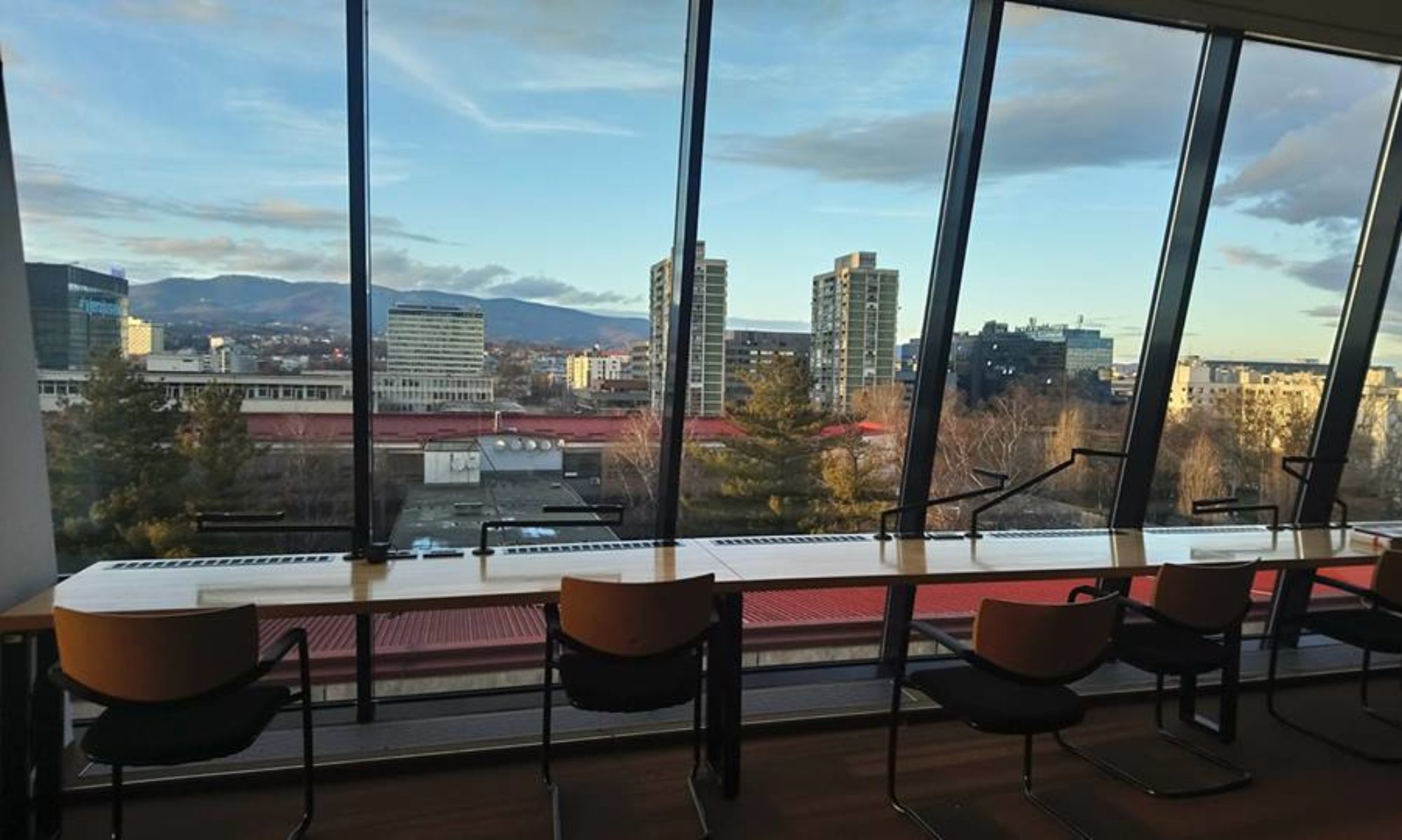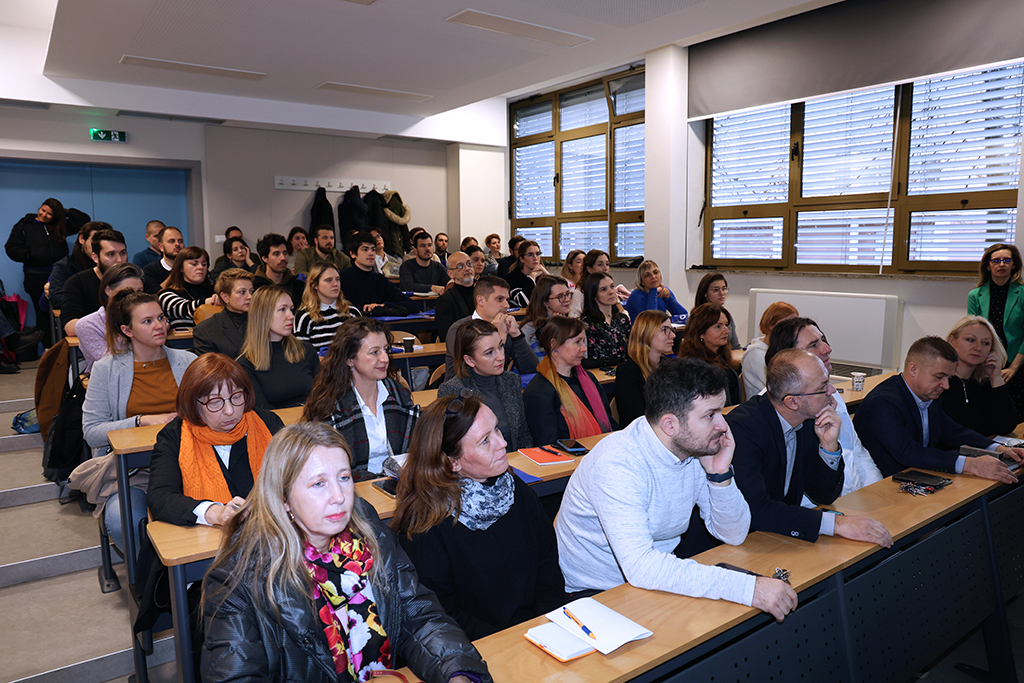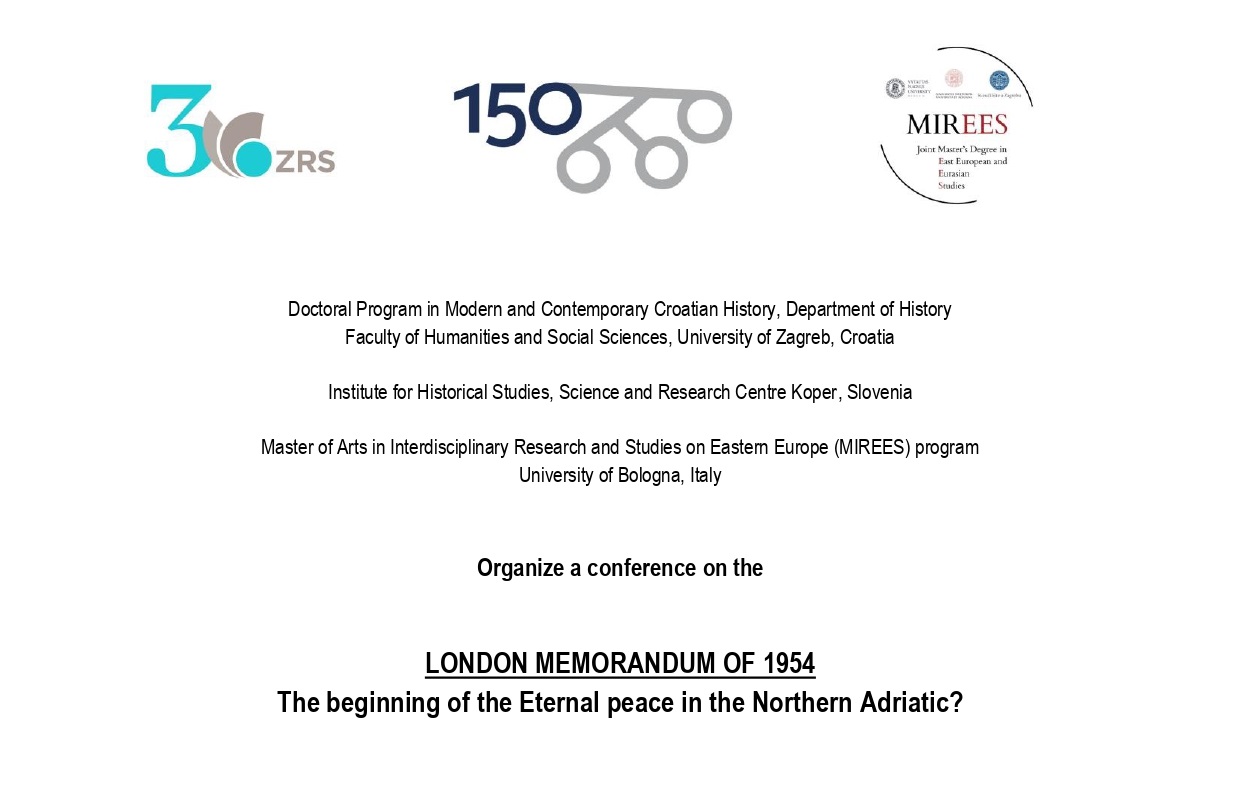SCIENTIFIC CONFERENCE
THE LONDON MEMORANDUM OF 1954. THE BEGINNING OF ETERNAL PEACE IN THE NORTHERN ADRIATIC?
Zagreb, November 14-15, 2024
Organized by the Doctoral Study Program in Modern and Contemporary Croatian History in the European and World Context, Department of History, Faculty of Humanities and Social Sciences, University of Zagreb.
In collaboration with:
MIREES, East European and Eurasian Studies, Alma Mater Studiorum University of Bologna
Scientific Research Center (ZRS) Koper
ERC Open borders Project: Cold War Europe Beyond Borders
November 14, 2024, Conference Room, Faculty Library
(Chair: Hrvoje Klasić)
10:30 Opening of the Conference (Bianchini, Jakovina, Pirjevec)
11:00 Tvrtko Jakovina, The Era of Globalism: Foreign Policy of Yugoslavia and the Trieste Question in 1954
11:20 Jože Pirjevec, Edvard Kardelj and the Trieste Question
11:40 Stefano Bianchini, Reconsidering the Pathway to the London Memorandum in the Light of Multiple Regional Interests in the Balkans
12:00 Benedetto Zaccaria, Italy and Yugoslavia from the London Memorandum to the Osimo Treaty, 1954–1975
DISCUSSION
15:00 SECOND SESSION (Chair: Federico Tenca Montini)
15:00 Božo Repe, The London Memorandum and the Slovenes
15:20 Anna Graf-Steiner, The Role of Austria in Soviet Strategy on European Security: From the Austrian State Treaty to the Helsinki Final Act
15:40 Stefano Bottoni, Hungary and Romania after Stalin’s Death
16:00 Ivo Goldstein, Dilemmas, Plans, Achievements – Josip Broz Tito in the Mid-1950s
16:20 Hrvoje Klasić, The Yugoslav-Italian Border Issue in the Croatian Emigrant Press
DISCUSSION
November 15, 2024, Conference Room, Faculty Library
SECOND DAY, THIRD SESSION (Chair: Anna Graf-Steiner)
10:30 Darko Dukovski, Istria: Historical Turning Points 1945–1954
10:50 Borut Klabjan, Rethinking Border Regimes in Cold War Europe: Cross-Border Mobility along the Italo-Yugoslav Border in the 1950s
11:10 Marko Medved, The Catholic Church in Relation to the London Memorandum of 1954
11:30 Gorazd Bajc, The Issue of the Slovenian Bank in Trieste, 1945–1954
11:50 Federico Tenca Montini, The Solution to the Trieste Crisis: Why 1954?
DISCUSSION
End of Conference


